Professor Ayman Agbaria is a Palestinian poet, playwright, scholar and activist. He is a senior lecturer in education policy and politics at the University of Haifa, a faculty member of the Mandel Leadership Institute, and Sikkuy board member. He was a Visiting Scholar at the Centre for Research and Evaluation in Muslim Education at University College London in 2016. He spoke to Fathom editor Alan Johnson about Israel’s new civics textbook and the struggle of the Arab-Palestinian minority for an equal society and shared homeland. Also in this issue, see Dalia Fadila on Israel’s revolutionary network of Q Schools.
Part 1: Texts
Alan Johnson: The high school civics textbook, some 500 pages long, was released earlier this year. Some have alleged that it marginalises Israel’s Arab-Palestinian minority, offering ‘more Judaism less democracy’, and only mentioning settlements and Palestinians in passing. It has been pointed out that no Arab-Israeli authors are listed in the credits. One copy editor complained that ‘a spirit of religious-nationalist missionising infused the textbook’. What are your own thoughts?
Ayman Agbaria: I share those concerns. The whole process of creating this textbook was deficient. First, it lacked proper involvement from Arab professionals. In other words, the Arab academic and political leadership were not involved in drafting the book or in responding to it. Second, there is the question of recognition. To what extent does this textbook reflect the hopes and the fears of the Palestinian minority inside Israel, its cultural heritage, its historical narrative and even its civic status in the State of Israel? The answer is crystal clear. It does not. Our long-standing history of marginalisation and discrimination is not reflected at all and the issue of integration is put on the shoulder of only our community – it’s the responsibility of the minority to integrate themselves into the state. There is little talk about the responsibilities of the state.
Third, this is a bad book for the Jewish population because it boosts the religious-messianic conception of Judaism and of the State of Israel. It moves us from talk of being citizens in the State of Israel to a more biblical language. That erodes the civic foundation of the State that one day could be – but is not currently – shared between the Palestinian minority and the Jewish-Israelis. The right of the Jewish people for self-determination could be recognised as a universal right, but if the State of Israel gains its right from the Bible, not from the UN resolutions, not from the universal right of self-determination, well, that is very different and very dangerous. If you turn reasons into messianic arguments, and politics into religion; well, you know it’s very difficult to argue with God! This new emphasis moves politics to the terrain of the sacred and the divine, where everything is explained and rationalised in terms of ‘God says so’.
And the emphasis on biblical language and arguments strengthens only the Jewish identity of the Jewish students, not that of the Palestinian students, who are supposed to use the same book. The book creates unequal access to resources for self-recognition and identity building.
AJ: You have argued that that the civics textbook returns the country to an older discourse that fragments the Arab Palestinian minority. What do you mean?
AA: I was a member of the Ministry of Education’s civics studies committee, which is responsible for curricular policies in this subject, a couple of years ago and realised there was a tendency on the part of the Right in Israel to remould education in Israel in the spirit of what I call the ‘New-Zionist agenda’. I recall that I was talking about ‘the Palestinians’ in Israeli society and the chairperson of the Pedagogical Secretariat at the Ministry of Education said to me that I could not use that term. I was told to use the term ‘Arab minorities’ with an‘s’, plural, or the term ‘Arab sector’. Of course, I refused to do so. And, after participating in some additional meetings I resigned to protest over the pressures to introduce more nationalistic content into the curriculum. Over all, the curriculum and the textbook approach the Palestinian society in Israel as an aggregate of religious and ethnic groups: Muslims, Christians, Druze. Ironically, the civics textbook devotes considerable space to presenting the Aramaic population. The attempt to constitute this marginal population is indeed failing, as this new Israeli manufactured identity aims at de-Palestinising the Christian community in Israel. It is a case of divide and rule – there is no other way to describe it. It is part of a control strategy that has been in Israel for years.
The academic Ian Lustick has written about this strategy of segmentation. First, you isolate the Palestinian national minority from significant relationships with the Arab world, with the Palestinian diaspora, and with the Jewish community itself. And then you segment it into ‘Druze’, ‘Christian’, ‘Muslim’ and so on – a cluster of confessional groups rather than a national minority with collective rights and collective identity. This is an attempt to locate the Palestinians in Israel in a permanent ‘double periphery’: to be peripheral to the Palestinians and the Arab world, and peripheral to the Israelis. This marginality would presumably ensure that the Palestinians in Israel continue to be dependent, in crisis, and in constant search for recognition that will remain always unfulfilled and unattained, as long as they exist in this situation.
AJ: But hold on, even the left-wing Haaretz newspaper has pointed out that the textbook shines a spotlight on the 1956 massacre in the village of Kfar Qasim, when the Israeli border police shot 49 Arab-Israelis; notes the gaps in educational and economic status between Arab-Israelis and Jews; dedicates an entire chapter to tolerance and pluralism, and actively encourages students to research coexistence initiatives and to debate how they can contribute to better relations. It cites examples of racism and discrimination in Israeli society, such as those that disfigure soccer in Israel as well as an example of racism at the Superland amusement park. Would you accept that the textbook is problematic but is still basically on the side of tolerance and pluralism?
AA: The problems with the textbook are more profound than you say. This is about how democracy is defined and what it means to be a Jewish and / or a democratic state. It is good to have the spotlights you mention, but they do not add up to the beam of light we need into lives of the educators and children. For example, the idea of Israel as a Jewish state is highly contested in the country, even between Jews, but that is not reflected in the textbook. Another example is that it teaches the false understanding of democracy as a political regime that can be constituted on the basis of the ethno-cultural characteristic of the majority, without a wide agreement on the rules of the democratic game, and without safeguards for the minority’s representation and recognition. The textbook does that all and in doing so it distorts democratic theory.
In this regard, the book is bad for Palestinian and Jewish students alike. We want the students to engage with what it means to be a Jewish, democratic state and to look at both from a critical point of view, not by indoctrination as this textbook does. It should have provided a space for deliberation and for critical thinking. In this regard, while Arab students might have other venues and possibilities to reexamine and challenge their school knowledge on civics and history, through the media and civil society organisation’s projects, Jewish students are indeed subjected to the indoctrinating official knowledge of the state.
Part 2: Contexts
AJ: You have argued that the new civics textbook is an expression of three deeper tendencies in Israeli society: increasing separation between Jews and Arabs, the surge of ethno-religious thinking among Jews, and the preference for differentiated content in education. Let’s take each in turn, beginning with the separation between the Arab-Palestinian minority and Jews in the educational system which, you worry, only deepens the isolation of each group from the ‘Other’.
AA: One the one hand we do see a greater presence of Arabs as doctors in hospitals or as pharmacists in drugstores – I guess between 40-50 per cent of pharmacists in Israel are Arab Palestinians – or as sellers in the shopping malls. But this is not because Israeli society has become more tolerant and accepting. It is because of the segregated nature of the Israeli labour market that concentrate Arabs in specific economic sectors, as well as the attraction of cheap Arab labour. Overall, I think the process of separation is intensifying. The government has put some measures in place to integrate more Arabs in the civil service and the public sector, but even here it has fallen behind its own modest targets. More recently, a discriminatory and racist bill has been advanced in the Knesset to allow communities to reject residents if they do not meet the criteria of ‘suitability to the community’s fundamental outlook’, which in effect enables them to reject candidates based on ethnicity, religion, or even socioeconomic status. This is the old colonial logic of separation. It is the mindset that says ‘we are living in a settlement’ and we must keep the ‘Other’ out. This still seems to be the dominant attitude of the Jews of Israel towards the Arabs of Israel. Sometimes it seems that Israel doesn’t want to legitimise itself. So we see these admissions committees as isolated settlements with high fences, even electric fences.
Look at education. Although the majority of schoolchildren in Israel are enrolled in the state educational system, Jewish and Arab schoolchildren, as well as secular and religious Jews, attend different schools; it is a segregated system along lines of ethnicity, religiosity, and socioeconomic status. We see a shortage of Jewish teachers in the educational system and a refusal to absorb the unemployed Arab teachers. You would think that many of these Arab teachers would be absorbed in Jewish schools to teach science, maths and Arabic. But this is not happening. Within the religious state school system, a legal directive was sent by an official in the Ministry of Education – it was published in the newspapers – asking school principals not to absorb Arab teachers. Imagine if in Britain or France there was a refusal to absorb an African-American or a Jewish teacher in order to preserve the ethno-cultural character of the school!
In 2015, a news story illustrated how low the values of integration and coexistence are to the Ministry of Education. 15 organisations engaged in improving relations between youngsters from different segments of society requested that the Ministry of Education double their funds to 3,000,000 shekels (£600,307). To prove how insignificant even this enhanced budget would be, the report reminded the Education Ministry that it currently allocated 12,000,000 shekels for its press budget alone.
Separation has been legalised, intensified and expanded from the traditional areas such as residential rights to other places, even the Knesset. One Knesset member recently asked to separate pregnant Jewish and Arab mothers in hospitals because the moment of birth in Jewish religion is a divine, sacred moment and he didn’t want the rooms to become contaminated.
AJ: But thankfully, a lot of people condemned the MK for saying that.
AA: Yes. I am happy that there are still people who have reason in Israeli society. But I am pointing to one of these three worrying tendencies that form the context of the new textbook.
AJ: And the second tendency, according to you, is the surging of a strong ethno-religious ethos and narrative that is separating a Jewish ‘us’ from a Palestinian ‘them’?
AA: Yes, there is this strong tendency to ‘religionise’ the public sphere in Israel. To be more specific, Israel is witnessing the growing power of religious ethno-nationalism, which is a specific form of ethno-nationalism distinguished by being based on a transcendent set of ideals and norms that gives ethno-national values, politics and identities a seal of sanctity and inevitability. It is an all-encompassing ideology that explains all and imbues national identities with zeal, absolutism and historical justifications in the name of an imagined collectivity that is often conceived as superior, sacred, pure and with a long-standing historic mission.
You can see this in the growing influence of the religious-Zionist movement in the government. Even the Likud Party has changed, because people like Dan Meridor and Benny Begin are now considered leftist! This religious-Zionist movement offers a way of thinking, a set of religious ideas and logic that are now influential inside the cabinet, inside the Ministry of Education, inside the Foreign Ministry, and have captured the position of Israel’s Ambassador to the UN.
Previously, people in this religious-Zionist or national-religious movement were a little shy about their growing power. Now, they are frank about it. Their attitude is: ‘This is who we are, we are here to govern and we are the new elite of Israel.’ Look, a shift is taking place in Israel, and a new elite is emerging; it wants to govern and in places it is actually governing. It’s not like they are hiding behind a liberal façade anymore. Today, there is a combination of powerful political forces who share the belief that ‘the Biblical Land of Israel’ is a superior – divine to some – end that supersedes the democratic principles of the State of Israel in its importance to the Jewish people, which is conceived as a unique spiritual-ethnic community. This is inspired by the Jewish national-religious movement’s theology that emphasises the sacredness of the State of Israel and considers the Jewish national movement to be a divine agent, a step in God’s plan for redemption.
Today, their transcendental, messianic logic is put right out front and centre. The spreading influence of Rabbi Abraham Isaac Kook is obvious. Look back 20 years ago and you will find the writings of Rabbi Kook were influential in some specific domains. Now it is on the way to becoming a dominant and genuinely popular ideology. So the politicians chase after it. When Benjamin Netanyahu goes to the extreme Yeshiva Mercaz HaRav which is in Jerusalem and considers the students there as the tip of the spear of the Zionist movement, it is indeed very meaningful, and also very upsetting and worrying.
In the early 1990s, the debate on the ‘Jewishness’ of the state was really marginal. The educational laws didn’t even mention it. It was only after the Oslo Accords, which resulted in the ethno-nationalisation of Israel, that we saw the increased presence of religiosity in politics. We’ve had Moshe Yaalon and his idea of the spirit of the Jewish warrior. We’ve had the Israeli army commanders going into Gaza and citing the Bible, telling soldiers they are going to fight against the Amalekites. All this is new and reflecting a new obsession with selection based on Jewishness.
This is evident in the range of new initiatives that have swept the education system, including the secular sector, aiming at augmenting Jewish identity and values. One of the recent programmes, for example, that draws on a plethora of religious texts and references to religious symbols and ceremonies is a new subject in the school curriculum, ‘Jewish-Israeli culture’. More recently, the Religious Education Administration has supervised and supported a mandatory social studies curriculum in elementary state religious schools that includes a section on the ‘Love of the Land and the Temple’. This section completely ignores the religious meaning of the Temple Mount (for Muslims: Haram al-Sharif) and does not refer to the existence of Al-Aqsa Mosque therein.
AJ: Recently, there was a controversy about the withdrawal of the novel Borderlife from the curriculum by the Education Ministry on the grounds that it might encourage intimate relations between Jews and Arabs, or confuse young Jews who have not yet formed a strong Jewish identity. Is that the sort of thing you mean by a ‘new ethno-national ethos’? And how was that furore experienced by the Arab minority?
AA: Well, it exemplified to the Arabs how much they are unlikable and undesirable – even in a book! We were pushed out not just from the material world but also from the symbolic or mental world – from awareness itself.
But this sort of thing is also very damaging for Jewish children. Look, the public mind of Arab children is not only nourished by the State of Israel. The world is open to them. There is an Arab world, a Muslim world, and the world of social media. They have satellite TV and so their social cognitions are fed from many sources – some are good, some are bad. But some Jewish children are acquiring a state-regulated mind. No one broadcasts in Hebrew, except Israel. The media they listen to is often self-referential. And children who don’t speak English are dependent on state-sponsored channels. Much of the Israeli media has been recruited for the national and security cause. At the same time, the magnificent alternative media in Israel is now being demonised; labelled as ‘leftist’ and pushed to the margins. So Jewish children are left with this state-sponsored narrative of the selected nation, the power and will of God, according to which power doesn’t need liberalism, power doesn’t need a moral cause, power is transcendental, God-sanctioned. So, Jews have rights to this land because God says so. And as I said earlier, you can’t argue with God. The official Israeli narrative preserves the dichotomy between the Jewish ‘us’ and the Palestinian ‘them’ by maintaining a grand religious vision that is mobilised constantly by the movement of the Jewish settlers. This vision seeks to legitimise the idea of the ethnic and religious superiority of Jews over non-Jews, and to justify the seizure of land by arguing that it was promised to the Jewish people by God.
AJ: The third worrying tendency, according to you, is that the content of the education that is being delivered to Israeli-Jews and the Arab-Palestinian minority is changing in ways that further separate the two national groups. You write that the latter receive a standardised and de-contextualised education that excludes ideology and politics and holds up good professionalism as the only standard, whereas the latter are receiving a much more political and ideological education. Is that a fair representation of your concern?
AA: Yes, it’s a fair description. When we talk about Arab education there are four issues to consider.
First is the question of equality – how much is the State investing in the Arab and Palestinian child vis-à-vis the Jewish child? Here, there is a gap: this is an undeniable fact.
Second is recognition – in other words, there is a failure to properly acknowledge collective Palestinian identity, Arab identity, and the cultural and social needs of the minority. There is a continuous attempt to de-Palestinise us and to overlook the particular needs of the minority, including its need for its historical narrative to be recognised.
The third issue is participation – how much are we involved in policy-making? Do we have a seat at the table? We have been arguing for establishing cultural autonomy for the Arabs in Israel. And then we find this replaced with the phrase ‘to grant self-steering capacities to the Arab communities’.
The fourth issue is quality. What kind of education is being received? Israeli children are enjoying an overdose of educational resources telling them who they are and what they are, in terms of their Jewish tradition, Judaism and biblical studies. But when you talk about a Palestinian, or even a Muslim identity within Arab education, we are told this is a ‘political’ issue. Instead, there is an over-emphasis on achievement within the Arab schools, which encourages aggressive individualism and the dismantling of collective bonds. It seeks to create a new Palestinian subjectivity which cares only about success. The message to the young people is that if they invest more in their studies they can be a lawyer or a professor, but when they graduate from university they find that they are channelled into specific positions in the labour market. Of course, a few individuals break through, but as a collective, no. The gap still exists. And this idea of being ‘excellent’, of ‘beating the system’ is only for a few, of course, by definition.
Most importantly, neoliberal policies have resulted in a new form of ‘governmentality’, according to which state control over Arab education is secured not so much by the volume of direct authoritarian production of incentive and sanctions, but rather through shaping the behaviour of a self-regulating, choice-making, self-reliant individual or citizen. Two twin strategies have emerged: a greater individualisation of society and the deflection of responsibility from government onto individuals and families. Consequently, the individual’s success or failure in education is seen more as a function of the ‘character’ of students and their families, and less as an outcome of social structures and government provision through the education system.
The rush for achievement, excellence and compliance with standards creates a situation whereby there is (allegedly) not enough time and room in the school and its programs for discussions of questions of identity, community development or social responsibility. This situation ensures and magnifies the depoliticisation of Arab education, which in turn, serves the ends of the state in maintaining a compliant and subservient second-class Arab minority in an ethnically Jewish State.
Part 3: Strategies of Counter-Knowledge
AJ: Palestinian teachers, you say, have always responded to the official citizenship education curriculum with ‘strategies of counter-knowledge’. What do you mean?
AA: No regime of control is total or all encompassing. There are always ways to speak back to power, and this is what the Palestinian civil society does, by producing alternative material that gets disseminated in schools and at after-school programmes. Even in the classes the teachers can teach their students to get top marks in exams on the Jewishness of the state, and make it clear that, out there in the real world, that is a contested issue. Another strategy is to teach the content of the curriculum because it is ‘obligatory material’ and is needed to succeed in the Bagrut, the Israeli matriculation exam, without which their students cannot be accepted into the higher education system. But teachers also produce what we might call counter hegemonic discourses and oppositional spaces within their classes. For example, when they talk about rights, they teach this as a universal issue, but also conceptualise it in terms of the particularities of the Palestinian minority in Israel. They teach about the universal right to privacy, for example, but they also ask questions such as, ‘Is it OK to search people in that way at airports?’, or ‘Does destroying someone’s home contradict the right of mobility?’ All the rights they speak of – mobility, privacy, and due-process – can be contrasted to the severe realities Palestinians face inside Israel – poverty, unemployment, and even violence.
Another ‘strategy of counter-knowledge’ is to posit to the students the existence of an entity between the state and the individual – ‘society’ or ‘community’ – and then ask, ‘Where do you exercise responsibility? Where do you exercise commitment? Where do you exercise your rights?’ We cannot encourage our children to simply identify with the state. Political emotions are also directed to the community, though sometimes this can amplify the alienation of the students from the state, and this in turn can make the boundaries impassable. Teachers can create an alternative sphere of belonging in which the students’ community replaces the state. With this strategy, they demand rights from the state and confine their duties within the boundaries of local communities. The teachers position the local community of the students – be it a town, a village, or a neighbourhood – as the main arena in which they are expected to demonstrate civic involvement. Most importantly, teachers encourage their students to ponder the violence, poverty, unemployment, and the poor living conditions and infrastructure in their local communities. Students deliberate on the causes of these conditions and are encouraged to act locally.
Another strategy has been the instrumental teaching of civics. They teach their students citizenship and rights because we want them to be able to defend themselves against prejudice and discrimination. This is why many teachers have asked for more education about the law, and why many Arab students seek out legal education at the school level – they believe that the legal system can be used as a tool to protect against state or individual discrimination, and that through the law they can achieve greater mobility and citizenship.
Part 4: Teaching Zionism in Israel
AJ: You have argued that if Palestinians were to study the history of the Jewish people and the Zionist movement, and if the Jewish people were to study the full breadth of the Jewish experience, and not just the Zionist narrative, this would help secure mutual recognition between the peoples and liberate both from the ‘ghosts of the past’. Can you explain?
AA: It’s very important to present multiple voices to the students and not to study Zionism in a monolithic way. All students in Israel, including Palestinians, should understand that the Zionist movement has many trends. Palestinian students should understand better their Nakbah by better understanding Zionism as a settler colonial project, which was not designed simply to exploit the Palestinian population and landscape, but also to deport this population, replace it, and to change its landscape forever. With this understanding, it would be possible for the Palestinians to realise that ‘settling’ involves a process of indigenising, a process of bonding and attachment, a process of creating intimacy between the Zionist settler and their homeland. With this understanding of Zionism as a settler colonial project, it would be possible to recognise that to be ‘colonial’ is not about being ‘foreign’, but rather about being ‘dominant’ and ‘hegemonic’. With this understanding, it would be possible for the Jewish students to realise that Zionism involves aggression and violence, and would enable them to reflect and be critical about the influence of Zionism on both peoples, Palestinians and Jews alike. I believe, with this understanding it would be possible to move beyond Zionism, and to realise that it is the time now to invent new moods of political mobilisation for the Jewish people.
We need the space to ask critical questions about Zionism, and the need for Zionism to refresh and restart itself over and over again. These questions concern engaging critically with the role of religion and the military in Israel, and in Zionism in particular. These are still taboos in the Israel education systems.
Most national movements cease to be when they secure their state – the movement morphs into something else. In contrast to most national movements that lose momentum when they achieve their goal, that is, when they create a state, Zionism has continued to refuel itself, long after the establishment of Israel, with zealous ethno-religious beliefs. Indeed, Israel itself has become a living embodiment of the Zionist movement. It behaves and acts as a movement, as it keeps expanding. It expands from within – into the physical and cultural spaces of the Arabs who are citizens of Israel making these spaces shrink and become more controlled – and from without – in the West Bank, where the settlers, as representatives of the State of Israel, continue to occupy and, in the case of some, to terrorise Palestinians. Eva Illouz, the prominent Israeli sociologist, explained once that Israeli settlers resemble the US southern 19th-century slave owners in many aspects, especially when it comes to how they have rationalised their superiority through sanctifying the land and themselves via Biblical narratives, in which they see themselves, like the pro-slavery owners, as executing God’s will.
We need to see the ‘Other’. The Jews see Zionism as a liberation movement, for some it has some romantic elements. But the Palestinians see Zionism as the face of the colonialiser. Each needs to understand the ‘Other’ – where he is coming from; only then you can humanise him. To humanise doesn’t mean that you accept, but you do see the complexities. For example, Palestinians see Israel as a colonial project, but in reality it isn’t simply colonialism, like the French coming to Algeria. This is a settler colonialism that seeks to establish claims for historic roots. We can’t dismiss it just because it’s an ‘imagined community’, to use Benedict Anderson’s term. You can’t imagine yourself as Palestinian but then deny the Jew the right to imagine himself as an Israeli. Another complexity in this settler colonial project is the attempt to indigenise. I, as a Palestinian, can have many arguments against the first generation of Jewish emigrants – such as colonial practices – but now there are third and fourth generation Jews who are as indigenous as I am in terms of how they perceive their existence. We usually contrast the organic place identity of the indigenous vis-à-vis the derivative place identity of the settler who doesn’t trust the existing landscape and works to uncover what he think is beneath it : his ‘lost’ history or ‘ancient’ land. Therefore, we often argue that we know the landscape, the names of the plants, the food, the memory of the rocks, better than the settlers. That said, after decades of violent changes in the landscape and the identity of the Palestinians and the Israelis, Palestinians need to acknowledge that Jews have also created a process of indigenising in Palestine, and think about what it means for Jews who came to this land and stayed. These people are not tourists, or people of the Crusades. We should all study the complexities to gain a better understanding as the basis for reconciliation.
Part 5: Politics and Poetry
AJ: As well as being an educator, you are also a poet. I can’t resist asking you about the defence minister’s recent comparison of the national poet of the Palestinians, the late Mahmoud Darwish, whose poetry I read with admiration, but whom Avigdor Lieberman compared to Adolf Hitler.
AA: I felt sad. Again, it’s a way to erase the space for encounter and dialogue. The idea seems to be that if you don’t talk about Mahmoud Darwish then Mahmoud Darwish will not exist. Does he think he can eliminate reality by stopping people talking about it? If so, then this is the colonial mind: ‘If I don’t see it, it doesn’t exist.’ It’s about isolating, emptying and depopulating the symbolic as well as the actual space of Palestinians. We are being removed from the social imagery of the Jews. People like the defence minister are trying to remould the social imagery of the Jewish public.
By the way, Darwish shouldn’t be treated only as the national poet of the Palestinians. He said of the Arab world, ‘save us from this cruel embrace’. His poetry is good not because it has a Palestinian message; it’s good because it is universal.
AJ: I found one of your own poems, written in Hebrew, online. Can you read it to me and tell me about it?
AA: I’d be happy to.
I have a role for you.
Perfect for you:
The hero’s best friend.
You get to be with the heroine too.
I promise some close ups.
And you might have a chance to sing too.
Come on,
Do you agree to write in Hebrew?
It’s actually a small part of a longer poem about where you find recognition. It is very important to think about from whom you demand recognition. It’s always your home, your natural environment that you demand recognition from, but also from your significant ‘Other’. Therefore, I seek recognition in the Arab world, in my culture, and in my language. Once, I hoped this might also work in the Israeli public. Unfortunately, this public does not exist. It is highly nationalised, religionised and restructured around the consensus on hostility to Arabs and Arabic. Yet, in the academy, I write and teach in Hebrew, through which I seek to influence my students and colleagues. But when it comes to my creative work I still dream and write in Arabic because I don’t feel completely secure within the Hebrew language.
Palestinians within Israel did not manage to produce what is called a ‘minor literature’. Perhaps the only one who has is Sayed Kashua, but even now he is treated as the ‘clown of the palace’. Anton Shammas authored a wonderful novel called Arabesques and it’s indeed a mastery in Hebrew, but this was his only novel and he gave up because he knew he couldn’t have recognition within the excluding Israeli society. Minor literature cannot develop without recognition from the surroundings. This is why I treat Hebrew as a ‘second best friend’, who hopefully can have second thoughts, as in one of my poems, entitled Debate:
Our bodies are better.
Our bodies are more precious.
Our blood is finer.
Our blood is sweeter.
Our dead are martyrs, yours are murdered.
Your dead will become earth, ours will be higher.
I am the victim and you are the killer.
I will remain and you will vanish.
Like this, the generals speak
Like this, they debated:
Which is thicker?
The tear of a mother or the powder of a bullet?

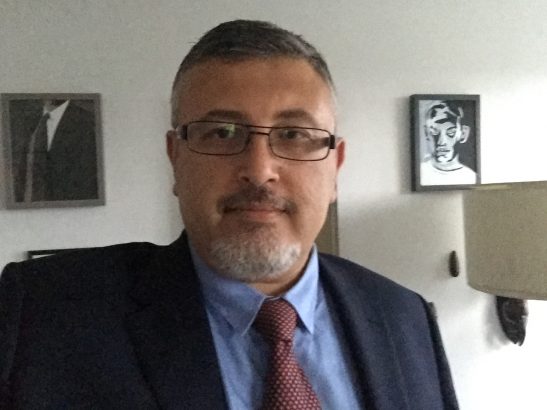
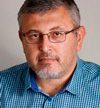
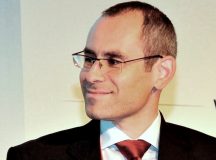
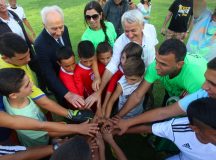
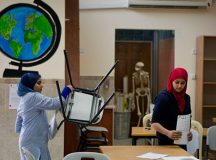
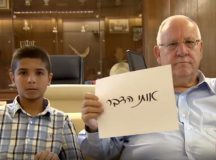































Comments are closed.